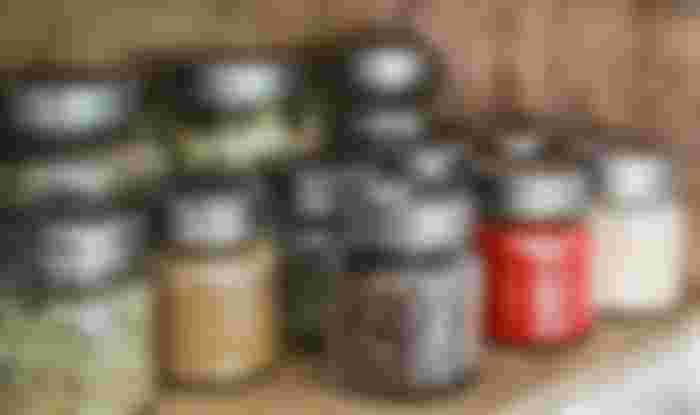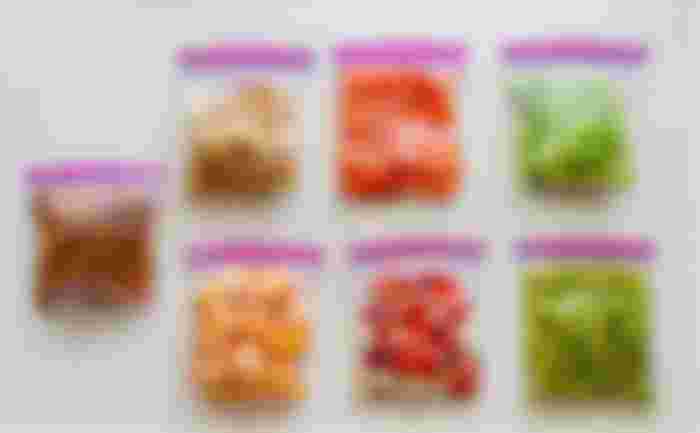7 Natural And Easy Ways To Preserve Food
INTRODUCTION
What's food? Literally life for us humans:') we love food and sometimes we like it so much that we want to preserve it for more time, or for someone who's not there at the moment or sometimes we just don't want to cook two times a day straight so we preserve the food to use it for next time as well.
So When it comes to food, we all want to make sure that it lasts as long as possible, also No one wants to throw food, so, If you're looking for ways to preserve your food, look no further! This article will give you 7 natural and easy ways to preserve food so that you can enjoy it for longer.
1. CANNING

Canning is a popular way to preserve food. Canning involves heating food to a high temperature and then sealing it in a jar or can. This process kills bacteria and other microorganisms that can cause food to spoil, so you'll have fresh food to eat later.
Canning is a great way to preserve almost all kinds of food, It is a simple process that anyone can do at home. All you need is a canning pot, jars, and lids. Canning is a great way to preserve food for long periods of time.
2. PICKLING
Pickling is another popular way to preserve food. Pickling involves soaking food in vinegar or saltwater. This process kills bacteria and other microorganisms that can cause food to spoil.
Pickling is a great way to preserve fruits, vegetables, and meats. It is a simple process that anyone can do at home. All you need is a pickling jar, vinegar, and salt and then you can easily preserve food with it for a long time at home.
3) VACUUM SEALING

Vacuum sealing is one of the most effective ways to preserve food. It works by removing all the air from around the food, which prevents spoilage. Foods that have been vacuum-sealed can last for months or even years without going bad.
Vacuum sealing is very easy to do at home like the other too processes, All you need is a vacuum sealer and some bags or containers. You simply put the food into the bag or container and then use the vacuum sealer to remove all the air. There are also special vacuum-sealable bags that you can buy.
Vacuum sealing is an excellent way to preserve food because it keeps it fresh and delicious for a long time. It also prevents freezer burn, which can ruin frozen foods. If you are looking for a way to extend the shelf life of your food, vacuum sealing is a great option.
4) FREEZING
Freezing is one of the easiest and most effective ways to preserve food. Freezing slows down the growth of microorganisms. Freezing also helps to preserve the flavour, texture, and nutrients in food.
Food can be frozen at home using a freezer. Most types of food can be frozen, including meat, poultry, fish, fruits, vegetables, baked goods, and leftovers. It is important to wrap food properly before freezing it to prevent freezer burn.
By taking advantage of this simple method, you can enjoy fresh and delicious food for weeks or even months.
5) DEHYDRATION

Dehydration is one of the oldest and most effective methods of preserving food. When food is dehydrated, the water content is removed, which prevents bacteria from growing and spoiling the food. Dehydration also concentrates the flavor of the food, making it more intense.
There are several ways to dehydrate food. The most common method is to use a dehydrator, which uses low temperatures and circulating air to remove the water content from the food. You can also dehydrate food by exposing it to direct sunlight or by using an oven set at a low temperature.
Dehydrated foods will last for several months, or even years, if stored in a cool, dark place. To rehydrate dried foods, simply add water back into them and let them soak for a few hours.
6) FERMENTATION
Fermentation is one of the oldest and most natural ways to preserve food. When food is fermented, beneficial bacteria have produced that help to preserve the food and make it more nutritious. Fermentation also helps to create unique flavors and textures that you can’t find in non-fermented foods.
There are many ways to ferment food. You can use a fermentation crock or jar, or you can simply use a clean glass jar with a tight-fitting lid. Fermentation doesn’t require any special equipment or ingredients, just salt, water, and time.
Fermented foods are incredibly good for your gut health. The beneficial bacteria that are produced during fermentation help to improve digestion and absorption of nutrients. They also help to keep your gut healthy by crowding out bad bacteria.
If you’re looking for an easy and natural way to preserve food, fermentation is a great option. It’s simple to do and the end result is a delicious and nutritious food that will last for months (or even years!) in your fridge.
7) IRRADIATION
Irradiation is a process that uses high-energy radiation to kill bacteria and other microorganisms that can cause food spoilage. Irradiation can be used on a variety of foods, including meats, poultry, fruits, and vegetables.
One advantage of irradiation is that it can kill bacteria without affecting the taste or quality of the food. Irradiation is also a very effective method for preserving food, since it can kill bacteria that are resistant to other methods, such as freezing or canning.
Another advantage of irradiation is that it is a natural process. Unlike other methods of preserving food, such as chemicals or additives, irradiation does not introduce any new substances into the food.
There are some disadvantages to irradiation, as well. One is that it can be expensive. Another is that some people believe that irradiated food is not as safe as non-irradiated food.
CONCLUSION
In conclusion it could be said that food is life and it takes time to make delicious food so to save your time and efforts there are many natural and easy ways to preserve food for later to enjoy it without any extra efforts of cooking, Some of the most popular methods include canning, pickling, drying, and fermentation.


